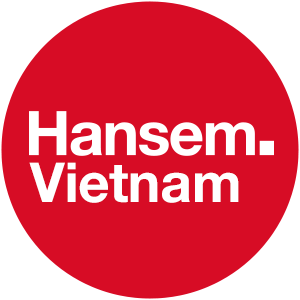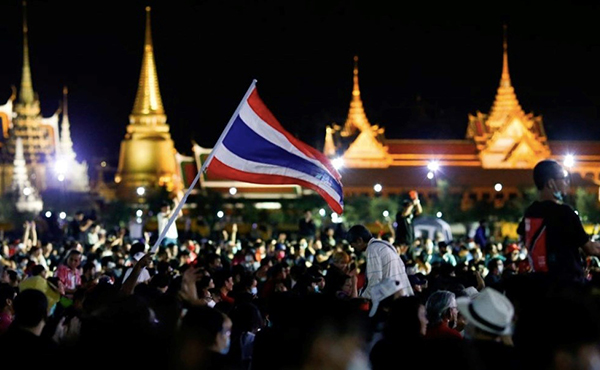list
Scripted by
Tuong Vi


As a newly industrialized market economy heavily reliant on tourism and exports, Thailand’s export turnover accounted for approximately 60% of its gross domestic product (GDP) in 2019. It is the second-largest economy in the ASEAN region. It is ranked among the Top 30 economies globally in terms of nominal GDP. The key economic sectors identified are tourism, agriculture and fishery, automation and auto parts, electricity electronics, food, and agribusiness. Although international financial institutions rated Thailand’s economic outlook positively, there are many potential risk factors due to the country’s internal political situation.
Thailand has been immersed in crisis since early 2020 by the protests of young people against the royal family and the authoritarian government. Thousands of students from prestigious universities joined in a series of protests that erupted across the country despite the increasingly severe developments due to the COVID-19 pandemic.

The pandemic has been deemed under control in Thailand since late 2020 until when Songkran (Khmer New Year) festival was hosted at the end of April 2021, having been postponed from the year before. The outbreak reached its peak in August 2021 with 20,000 new cases every day, but it has gone down now. The World Health Organization (WHO) reported that the total accumulated cases had surpassed 1.6 million in the country.
The slow vaccination campaign started a new wave of protests after a 3-month hiatus due to the pandemic. The protesters claimed, “Even if you stay home to keep yourself safe, you will still suffer and end up dead anyway because of the government’s inability to take care of the people.”
Due to the lagging progress in vaccinations and the new variant COVID-19 outbreak, Thailand has had to endure a downgrade in economic growth by 0.8 % from 3% in April 2021. The unemployment rate in the first quarter of 2021 was 2% compared to 1% at the same time in 2020 year-on-year.

Large-scale protests calling for royal reform (Photo: Reuters)
First of all, during the political crisis, public transportation and communication services were on strike. It rendered the communication and personal safety of freelancers was mutually vulnerable. While most resources were working from home and relatively safe from the chaos, this frozen communication chain has caused inconvenience for both resources and localization agencies.
Secondly, the COVID-19 pandemic also has threatened the availability of translators, editors, and proofreaders. LSPs could not contact the appropriate resources for the job, reducing their productivity and ability to meet deadlines. International payments were also interrupted or delayed. Thus, freelancers have had to wait longer to receive their designated payments.
Finally, there is an ongoing trend that many linguistic freelancers will leave the localization industry for a more promising career path, leading to a shortage of freelance translators.
As a well-established Language Service Provider in Asia with over 30 years of experience, Hansem Global strives to handle problems with measured responses. Over the years, thanks to our local office in Thailand and a dedicated vendor manager who is native in Thailand and focusing on developing linguists for South East Asia, we have expanded our Thai linguists, including translators, editors, and proofreaders for all available language pairs. We are focusing on finding native translators living within the country and those living outside the borders of Thailand. This measure would maintain a seamless workflow with backup resources, even when the primary contacts were out of touch under any circumstances.
By the same token, Hansem Global offers a vast pool of experienced Thai resources with various backgrounds, including medical, marketing, and technical content. Therefore, we are fully equipped for all cases, ready to connect the right project with the appropriate resources. During the political crisis earlier this year, while many LSPs failed to contact their translators, Hansem Global still managed to deliver completed projects within the deadline to our clients in Korea and many other clients in the United States regardless of the time zones or abrupt changes.
With the mission of serving both clients and our valued partners, Hansem Global has always focused on developing a lasting relationship demonstrating a solid bond with all of our resources. We have provided our resources with sufficient training and feedback before and after every project to work in conjunction with them and always have mutual trust and respect.
We are proud of the fact that most of our Thai resources have been working with us for almost a decade, handling millions of words and thousands of projects from various clients. When things were relatively normal before the pandemic, our director held annual visits to meet our resources and vendor partners in Thailand so that we could stay in touch and keep the resources on the same page by constantly updating them on the current situation in the localization industry.
As proven in point by our Vietnam office and our formidable resources, including the resilient Thai resources we cherish, Hansem Global wants you to know that we would be there to cater to your every need and concern, even when things are in sheer turmoil and will always rise to the occasion.
In this spirit, we at Hansem Global are delighted to serve you and look forward to working with you down the road.
Please contact us immediately should you need to translate or localize any Thai-related content during COVID-19.
Hansem Global is an ISO Certified and globally recognized language service provider. Since 1990, Hansem Global has been a leading language service company in Asia and helping the world’s top companies to excel in the global marketplace. Thanks to the local production centers in Asia along with a solid global language network, Hansem Global offers a full list of major languages in the world. Contact us for your language needs!